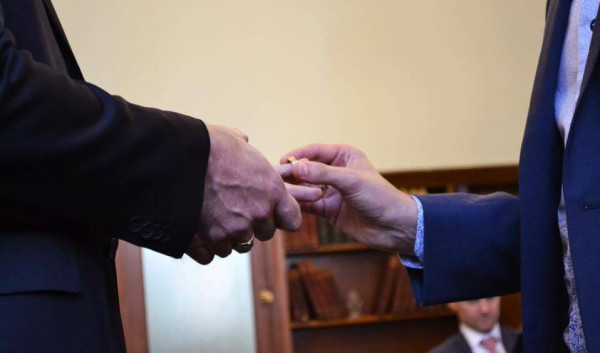

The government will equalise survivor benefits for male and female same-sex couples in the Local Government Pension Scheme (LGPS).
The changes are being made to comply with a ruling by the Supreme Court last year and consequent decision from HM Treasury to update public sector pension scheme rules accordingly.
But LGPS, with more than 5m members, won’t be extending the same treatment to male survivors of opposite sex marriages.
The government’s decision follows the ruling of the Walker v Innospec case.
In July 2017, the Supreme Court ruled same-sex couples that were married or in a civil-partnership should have the same pension benefits as heterosexual couples.
The LGPS will be the second public sector scheme to change its rules due to the ruling, following announced changes in the Teachers’ Pension Scheme earlier this year.
In a consultation published yesterday (4 October), the Ministry of Housing, Communities and Local Government proposed the changes will be implemented in LGPS as though they had applied from the date civil partnerships and same-sex marriages were implemented, in 2004 and 2014, respectively.
"Hence there will be a need for LGPS administering authorities to revisit all awards made under the current rules to partners affected and pay any additional sums that are due," the government said.
Many same-sex survivors of a public service pension scheme member will benefit from this change, it added.
Nevertheless, how much they benefit will be determined by a combination of factors, including when the deceased was employed, their pensionable earnings, the length of any pensionable service and the specific benefits of the scheme to which the deceased belonged, the consultation stated.
But the government wasn't extending the same treatment to male survivors of opposite sex marriages.
The European Court of Justice judgment in Barber required schemes to provide equal survivor benefits for males who survive their female spouse in relation to service only from May 1990.
The LGPS meets this requirement, but "it’s not proposed at this point to equalise benefits for all males who survive their female spouse on the same basis as they are provided to females who survive their male spouse".
The costs of doing so - £2.8bn across different public sector schemes – "would be significant", the government argued.
Stephen Scholefield, partner at law firm Pinsent Masons, said the proposed change wasn't a surprise and "simply introduces the equality for same sex partners that the Supreme Court ruled was required in the Walker case".
He said: "It does flag again, however, the historical distinction between widowers and widows, which now looks even more jarring than before.
"Whilst there are good reasons why this distinction is lawful, it could sensibly be considered when reviewing public sector schemes.
"It may be that the cost of addressing that could be offset by a small reduction in the benefits to be earned in the future, albeit that would mean that current employees are effectively paying to address the discrimination of the past."
The consultation will close on 30 November.
maria.espadinha@ft.com



